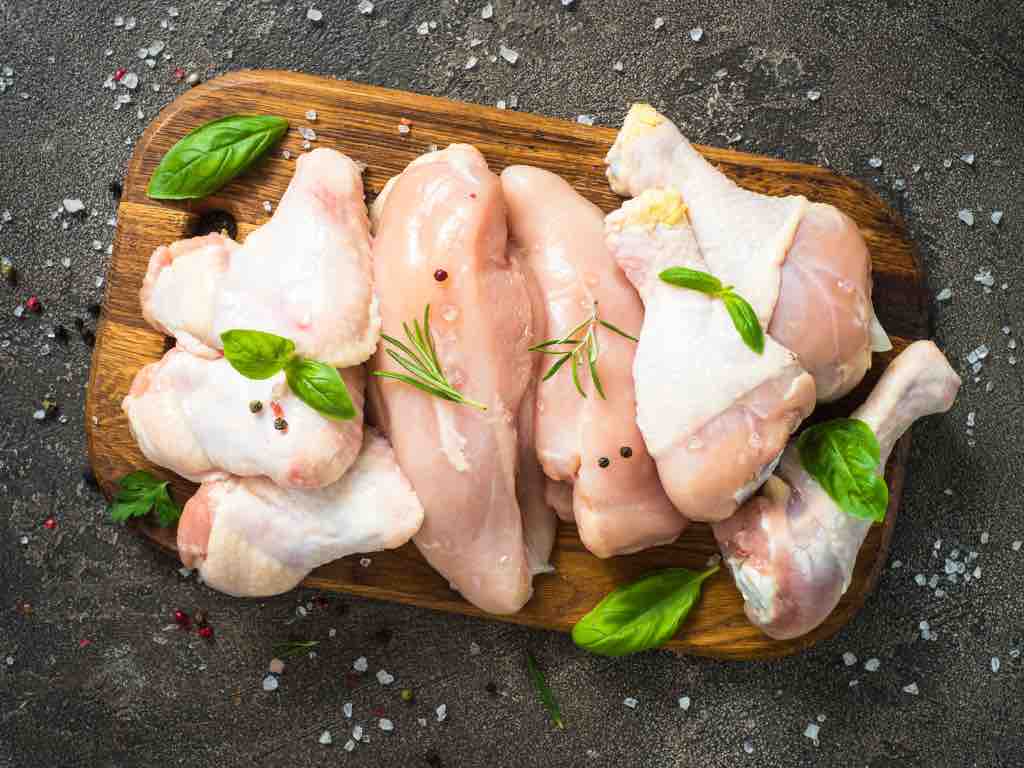
Navigating the World of Chicken Wholesale: A Comprehensive Guide
|
|
Time to read 4 min
Welcome to One Stop Halal!
Written by: Najma A.
|
|
Time to read 4 min
The poultry industry has always been a cornerstone of the global food market, and chicken, in particular, stands out as a staple in many diets worldwide. Whether you're a restaurateur looking to source quality poultry for your menu or a retailer aiming to meet your customers' demands, understanding the dynamics of the chicken wholesale market is crucial. In this comprehensive guide, we will delve into the intricacies of chicken wholesale, exploring the key factors that define this industry and how businesses can navigate it successfully.
Wholesale chicken involves bulk purchasing and distributing chicken products to various businesses, including restaurants, grocery stores, and food service providers. The vast and diverse market encompasses a range of products such as whole chicken, chicken parts, processed chicken, and more.
Whole chickens are one of the most basic and standard offerings in the wholesale market. These are usually sold in bulk quantities, making them a preferred choice for businesses that require flexibility in processing.
For those looking for specific cuts, chicken parts such as breasts, thighs, wings, and drumsticks are available in wholesale quantities. This allows businesses to tailor their orders based on their customers' demands.
As consumer preferences evolve, there is a growing demand for processed chicken products, including nuggets, tenders, and pre-marinated items. Chicken wholesalers cater to this demand by providing a variety of processed options.
The key to a successful chicken wholesale venture is partnering with reputable suppliers and prioritizing quality. Check for certifications, such as USDA approval, as a testament to the supplier's commitment to maintaining high standards.
Businesses need consistency in the quality and supply of chicken. Choose suppliers who have a track record of reliability and can consistently meet your demands.
In an era where consumers are increasingly conscious of the source of their food, having traceability in the supply chain is crucial. Ensure that your chosen chicken wholesaler can provide information about the origin and handling of their products.
Understanding the pricing structures in the chicken wholesale market is essential for businesses to make informed decisions and maintain profitability.
Efficient logistics and wholesale chicken distributors are integral to the chicken wholesale process. Businesses must have a well-organized system to ensure the chicken products reach their destination in optimal condition.
Adherence to legal and regulatory requirements is non-negotiable in the chicken wholesale industry. Businesses must stay informed about the applicable regulations to avoid legal complications and maintain consumer trust.
Halal Foundry is the wholesale division of One Stop Halal, where you can buy various meat cuts on a wholesale price. We deliver to your doorstep anywhere in the United States within 1-2 business days.
Effective marketing and branding strategies can set a wholesale chicken business apart from its competitors in a competitive market. Building a strong brand image and communicating value to customers is essential for long-term success.
Navigating the world of chicken wholesale requires a comprehensive understanding of the industry's intricacies, from selecting the right suppliers to staying compliant with legal regulations. To stay competitive, businesses must adapt to market trends, invest in efficient logistics, and embrace sustainability. By building strong relationships with chicken wholesale suppliers and clients, implementing effective marketing strategies, and staying ahead of emerging trends, chicken wholesalers can position themselves for long-term success in this dynamic and essential food industry.

© 2026 One Stop Halal, Inc.